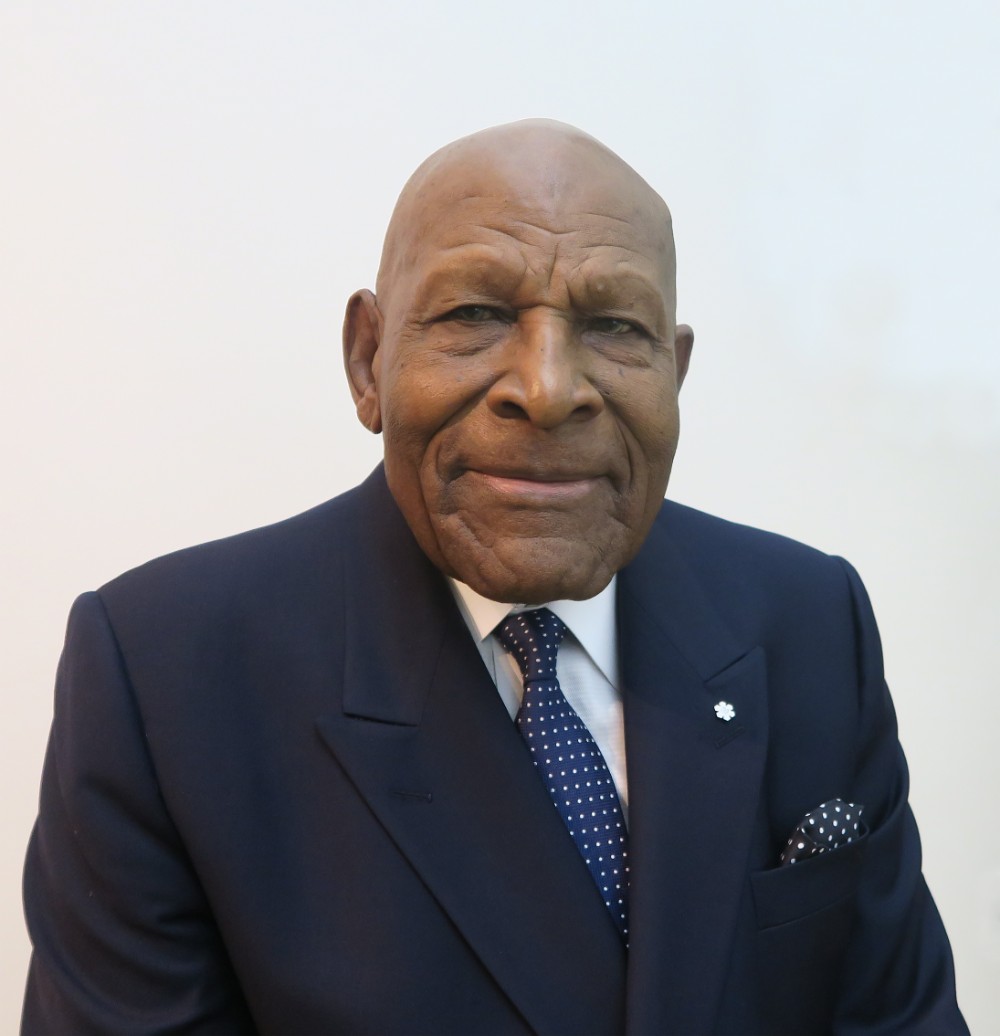Justice seeker
By Mark Campbell
 Given his lifetime of work for social justice, B. Denham Jolly, C.M. (XDDIP’58) would seem an obvious candidate for addition to the Order of Canada. When it finally happened this past November, it came with mixed emotions for this entrepreneur, human rights activist, philanthropist, author, and publisher.
Given his lifetime of work for social justice, B. Denham Jolly, C.M. (XDDIP’58) would seem an obvious candidate for addition to the Order of Canada. When it finally happened this past November, it came with mixed emotions for this entrepreneur, human rights activist, philanthropist, author, and publisher.
“I am honoured and thankful that Canada awarded it to me. Though in more sober minutes, when I talk to my friends, I say that, in a way, it is a makeup call to the community,” says Jolly.
The sentiment is understandable. For years, Jolly has devoted himself to pushing for more equity and more respect for Black Canadians. It is a commitment inspired by his parent’s example, as well as his own experiences with anti-Black racism in the country that has been his home since 1962. And the examples are many. The Immigration Canada form he signed agreeing to go back to Jamaica after completing his post-secondary studies in agriculture. (Something he notes that was not required of white students.) The bank managers who refused him business loans. The real estate agents who refused to sell him properties. The 12-years and $1.5 million he spent to secure a CRTC license for Canada’s first Black-owned, Black-community-focused radio station. And the times that police officers threatened to shoot him—once in 1956 when he was trying to catch a bus and once in 2011 following a minor fender bender.
These are just a few of Jolly’s many memories. Some are offered with a degree of anger, others with incredulity and weariness. But when he recounts the police officer threats, he starts to laugh. “What are you going to do?” he replies when asked about this reaction. For him, the answer has always been the same: “Push for fairness; push for equity.” And Jolly has in many ways.
Energized to fight injustice
Jolly has pursued a legacy of advocacy and activism that has consistently strengthened Black communities while addressing a horrific legacy of anti-Black racism and violence in Canada. He has never backed away from fighting for what is right. When a police officer killed 24-year-old Nova Scotian Buddy Evans at a Toronto nightclub in 1978, Jolly rallied the community to raise awareness of anti-Black police violence. He also hired a lawyer to represent Evans’s family and pushed for what became the longest inquest in Ontario’s history for a single death. In 1982, he purchased and became the publisher of Contrast, a weekly newspaper that reported on the Black community. That same year, he launched the Black Business and Professionals Association, which delivers programs that support business and professional excellence, higher education, and economic development in the Black community.
“Every injustice empowers and energizes me,” Jolly says. “It is one of the things that keeps me going. I have a sense of self-confidence that their premise of trying to keep me out is false on several fronts. They’re not superior. I don’t owe them anything. With colonialism, it’s even-stephen or better.”
“Never give up”
In talking about this legacy of advocacy, Jolly feels pride and unease. “Things have improved somewhat,” he observes. “The injustices are not meted out with as much widespread abandon as they were before because of a few more checks and balances, but we are by no means where we need to be. There is still a long way to go.”
As Jolly makes progress on that front, he continues to push for more fairness and equity in other ways, most notably through philanthropy. His charitable gifts include paying off the balance of the Jamaican Canadian Association’s mortgage and sponsoring a breakfast program at Cornwall College, his alma mater, in Jamaica. He’ has also awarded scholarships to Cole Harbour High School students and supports a boys’ soccer team at Regent Park in Toronto.
“Need is a big motivator for me to see what I can do,” Jolly says. “I believe you have a responsibility to share if you have a certain amount of success in life, and I could not have achieved that success without my Dalhousie education.”
Now 85, Jolly remains empowered and energized in his quest to advance social justice and equity. That legacy was documented in his 2017 autobiography, In the Black: My Life, which earned a Toronto Book Award and soon adapted for the big screen. Although he has no opinion about who should play him, Jolly does have advice for the next generation of Black Canadians who continue his work. “Be proud of your heritage, stand up for the underdog, work with other people where you need support, and maintain a tenacity of purpose. Never give up,” he says.